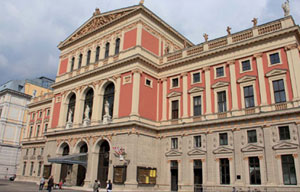Hu starts key trip to Europe
Updated: 2011-10-31 06:48
By Wu Jiao and Fu Jing (China Daily)
|
|||||||||
President to visit Austria before attending crucial G20 summit
BEIJING / VIENNA - President Hu Jintao left for Vienna on Sunday as China's role in helping the debt-ridden eurozone comes under the global spotlight.
The visit to Austria, from Oct 30 to Nov 2, is the first by a Chinese president in 12 years.
Hu will also attend the Cannes G20 meeting on Nov 3-4, when world leaders will address the global economic situation and the EU debt crisis.
Talks will be held with his Austrian counterpart, President Heinz Fischer, as well as with the Austrian Chancellor Werner Faymann and the Speaker of the Parliament Barbara Prammer.
China's Ambassador to Austria, Shi Mingde, told China Daily that Austria has arranged "unusual protocol" engagements for Hu, with both presidents leaving the capital Vienna to visit the world-famous city of culture, Salzburg.
"The visit is significant in the context of the worsening European debt crisis," Shi said. "It will have a profound impact on China-Europe relations."
Hu's visit to Europe, including the G20 summit, has raised hopes that China might make a firmer commitment to the European bailout fund, Agence France-Presse reported on Sunday.
China and Austria will sign seven intergovernmental framework agreements on economic and trade matters, the environment, water conservation, education and culture during Hu's visit, according to Vice-Foreign Minister Fu Ying.
Austria has advanced technology in environmental protection, new energies and materials, which are high on China's development agenda.
"So the two countries share many possibilities to cooperate, and can achieve win-win results," Shi said.
China "hopes that the green economy will become a new growth point", Fu said, adding that China is also interested in green transport, eco-agriculture and life sciences.
China is Austria's largest trading partner outside the EU, with trade worth $6.1 billion last year, a 26-percent increase from 2009.
Trade in the first eight months of this year reached $4.6 billion, up 18.4 percent year-on-year. During the past three years, bilateral trade has been growing by an average of 30 percent each year.
Thanks to its robust manufacturing sectors and flourishing small- and medium-sized enterprises, Austria is relatively unscathed in the EU debt crisis.
Austria plays an important role in boosting other European economies, said Lu Yonghua, who served as ambassador to Austria from 2000 to 2007.
Among the deals to be signed will be one between an Austrian art company and the China Arts and Entertainment Group to boost Chinese arts in Austria and other parts of Europe.
It will be signed against the backdrop of the Chinese leadership recently deciding to boost its cultural sector in line with the country's standing as the world's second-largest economy.
Lu said Hu's schedule reflects the spirit of the recent high-profile Party meeting that emphasized the rising significance of culture in boosting soft power.
China and Austria have maintained close cultural exchanges. More than 200 cultural events have been organized in Austria and China this year as Austria hosts the "Year of China".
Austria, seen as a haven of art and music, has been a key attraction for Chinese tourists, with 23,000 visiting the country last year.
After Austria, Hu will fly to Cannes, France, to attend the G20 summit.
Eurozone leaders reached a deal to tackle their crisis on Wednesday but finding sufficient funding to recapitalize debt-ridden European banks remains a headache.
Some European leaders have been looking for China to help bail out the EU, according to media reports.
China has ruled out any specific buying plan for the EU financial stability fund.
Some analyst have warned that it is not reasonable to rely on emerging economies to solve Europe's difficulties.
Neither is it realistic for Europe to pin too much hopes on China since the debt problem will only be solved by European countries themselves, said Qu Xing, president of the China Institute of International Studies.
Zheng Yangpeng and He Mengying contributed to this story.
China Daily











